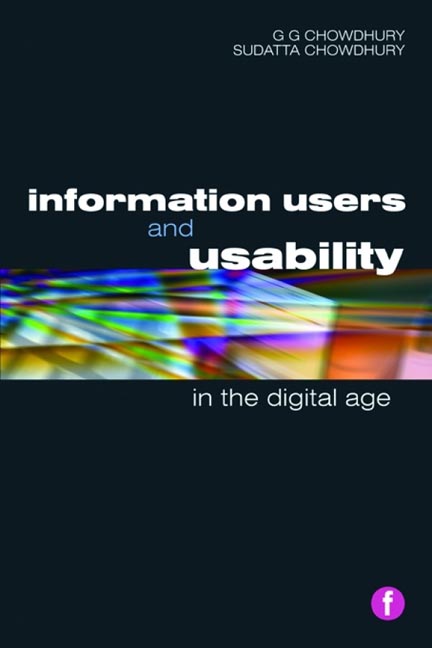Book contents
- Frontmatter
- Contents
- Preface
- Figures and tables
- 1 Introduction
- 2 Information needs and user studies
- 3 Human information behaviour studies and models
- 4 Usability study basics
- 5 Usability study participants
- 6 Usability data analysis
- 7 Web usability
- 8 The usability of digital libraries
- 9 The digital divide, digital natives and usability
- 10 Issues and trends in usability research
- Index
Preface
Published online by Cambridge University Press: 09 June 2018
- Frontmatter
- Contents
- Preface
- Figures and tables
- 1 Introduction
- 2 Information needs and user studies
- 3 Human information behaviour studies and models
- 4 Usability study basics
- 5 Usability study participants
- 6 Usability data analysis
- 7 Web usability
- 8 The usability of digital libraries
- 9 The digital divide, digital natives and usability
- 10 Issues and trends in usability research
- Index
Summary
It has become a common part of our everyday life to use a variety of online information products and services. These include e‑mail and web services, search engines, mobile applications, library catalogues, scholarly databases and digital libraries. Online information services have existed for around 50 years. They appeared in the early 1960s providing facilities for remote access to online library catalogues and bibliographic databases of scholarly information comprising abstracts or full texts of journal and conference papers. Since then a significant amount of research and development activity has taken place to improve online information services. While some of these research activities focused on developing better information search and access mechanisms, others have focused on measuring the effectiveness and efficiency of online information databases and search services.
Early research on the evaluation of information retrieval systems focused on developing parameters for measuring the level of performance of various retrieval systems and techniques. Originally these evaluation experiments were based on small test collections, which were used to measure the performance of specific online databases or search systems. Subsequently the size of the test collections grew and the retrieval evaluation research became more robust, focusing on more complex retrieval algorithms and research problems. At the same time, research on human information behaviour focused on different research problems related to information needs and user behaviour, and the number of online information systems grew rapidly, giving rise to a large number of models on general human information behaviour, information seeking and retrieval. Thus progress in information systems and services has significantly benefited from systems‑ and usercentred evaluation research in information. Together this research aimed not only to assess the performance measures of various information retrieval systems based on certain specific retrieval measures, but also to understand information seeking and retrieval behaviour and patterns to address such questions as why certain systems perform better than the others, why users like or don't like certain system features, and so on.
- Type
- Chapter
- Information
- Information Users and Usability in the Digital Age , pp. ix - xivPublisher: FacetPrint publication year: 2011



